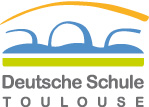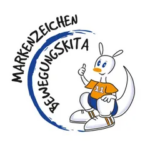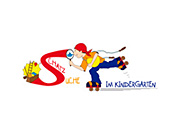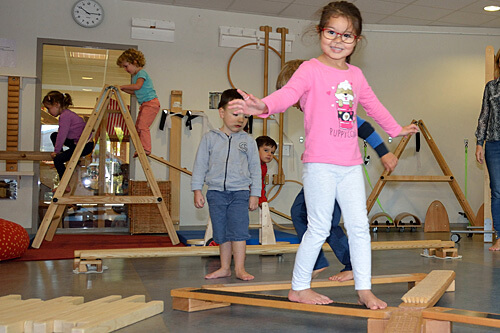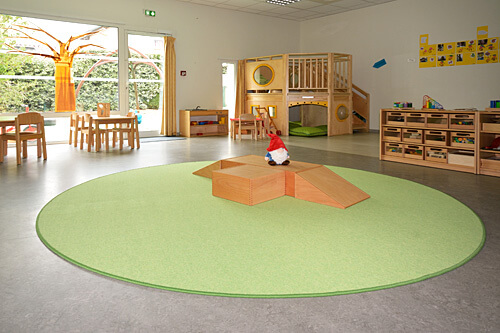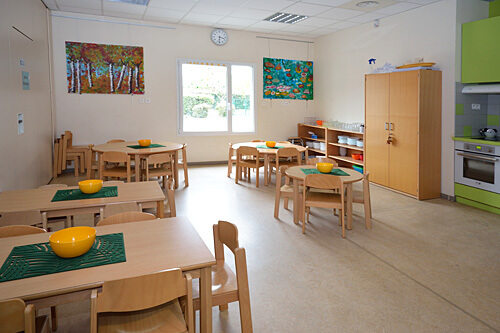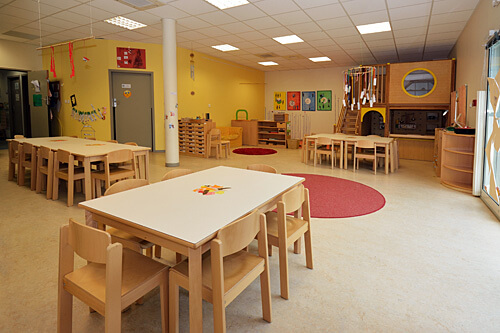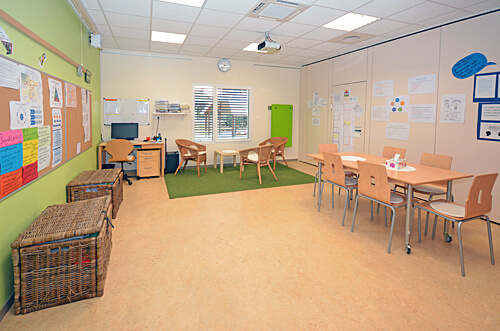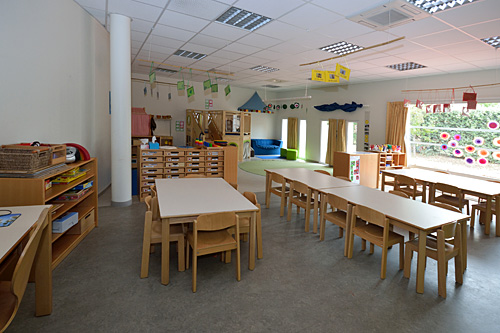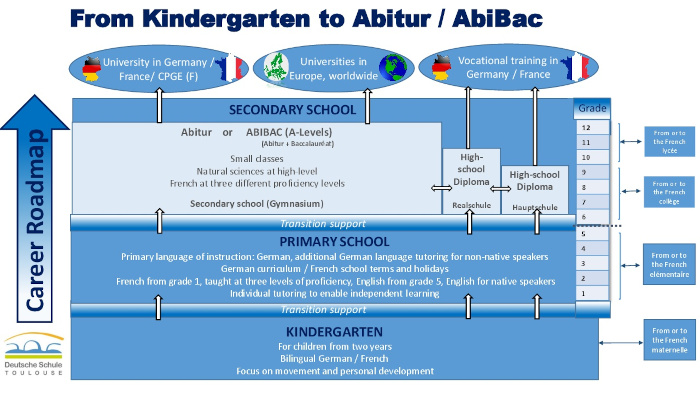Kindergarten
Discover our kindergarten
We are a German kindergarten, where children aged between two and six learn in an intercultural environment, supported and accompanied as they prepare for primary school.
It is important for us to create a harmonious and pleasant atmosphere where children feel safe and nurtured. We believe that wellbeing and confidence are essential to support their learning and development.
Activities are conducted in both German and French, and our educational work is based on the training and orientation programmes for kindergartens attached to German schools abroad, issued by the Central Agency for Schools Abroad (Zentralstelle für das Auslandsschulwesen) of the Federal Office of Administration, and our kindergarten educational project.
Our kindergarten’s main focus
Our kindergarten was awarded the German labels “School in motion” and “Treasure hunters”. We aim to provide a healthy environment for the children, with an educational focus on physical activity, health and wellbeing.
This is reflected in our facilities and daily organisation, while also respecting each child’s individual pace and our educational structure.
It is essential to encourage and adopt a respectful attitude, valuing the diversity of resources among the team, children and parents.
Intercultural teaching
Many of the children attending our kindergarten come from a wide range of cultural backgrounds, so our teaching is based on the acceptance of and respect for different languages, ways of life and religions. It is only natural that we want to promote intercultural openness as part of our daily work.
We see this as both enriching and an opportunity! For us, intercultural education means “diverse backgrounds – a common future”.
Multilingualism
Many kindergarten children learn languages in an unconscious, informal way, and the pleasure of being able to communicate with other youngsters plays an essential and motivating role.
Our native speakers of German and French support the children in an immersive learning process, offering conscious language support in everyday situations, while also developing various themes to enhance their language skills.
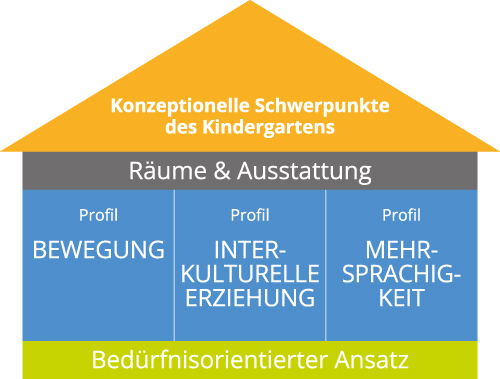
Summary
Our priorities are:
- smooth integration from the age of two
- holistic personal development
- learning independence and social skills
- project work and learning in a global context, respecting each child’s abilities
- creativity in everyday life
- cultural encounters and celebrations of traditional festivals across the year
- inclusive thinking and action in all areas
- respectful and rewarding attitude between staff, children and parents
School organisation
Our groups
| Children’s group (2 – 3 years) |
Mixed groups (3 – 6 years) |
|
|---|---|---|
| Number of groups | 1 | 3 |
| Maximal number of children per group | 16 | 22 |
| Number of teachers/educators per group |
3 | 2 |
| support staffs | Interns and Civic Service volunteers | |
The children are divided into set groups, but at certain points in the day and throughout the school year, the classes are opened up and the children can mix between classes/groups.
Our opening hours
| Mon, Tue, Thu, Fri | Wednesdays | |
|---|---|---|
| 08h15 to 12h15 / 16h15 | 08h15 to 11h45 | |
| Morning reception Evening |
07h30 to 08h15 16h15 to 18h15 |
07h30 to 08h15 |
The school is closed during French national and Bank holidays.
The daily timetable
| Time | Daily routine |
|---|---|
| From 07h30 |
Morning reception at the Eurocampus |
| 08h15 to 08h40 | Children arrive at school |
| 08h45 to 12h15 |
Morning activities in German and French
11h30: Lunch for kindergarten children (from age two) |
|
12h15 12h30 |
Pick up time Lunch for mixed age groups |
| until approx. 14h30 |
Nap time or quiet time, depending on the children’s age |
| 14h00 to 16h15 |
Afternoon activities in German and French Free play/physical activities + free motor skills/project work/workshops/activities /afternoon snack (with other classes) |
| 16h15 | Home time (Wednesdays: 11h45) |
| Up to 18h15 |
Evening care in the nursery school premises (only available for children whose parents both work) |
The last year before entering primary school
A child’s development and learning begins in the family home and is completed by kindergarten and primary schools. We aim to ensure the transition between the two stages is as smooth as possible, with educators, teachers and parents working closely together to ensure the child’s wellbeing.
In the last year before entering primary school, we feel it is very important to give children the time and space they need to:
- cultivate their curiosity and desire to learn at their own pace
- own and absorb their experiences
- make connections and links across a wide range of subject areas
- be responsible for themselves and as part of a group by taking on new tasks
- participate in and contribute to the school’s daily activities
The kindergarten’s role is to monitor a child’s behaviour carefully, and support their development, calling on additional resources where necessary.
The kindergarten and primary school share a common goal: developing a child’s basic skills.
In kindergarten, these are:
Abilities related to personal and social development, methodical capabilities and the learning of knowledge and skills.
The cooperation between the kindergarten and the primary schools of the German School of Toulouse (DST) is an integral part of our educational programme.
The timetable, contents and ways this cooperation are implemented are laid down in a written diary. This allows parents, the kindergarten and primary school to closely follow all progress. You can view the cooperation diary here.
The deadline for the transition to the DST primary school is 30 September.
Admission Information
- We welcome children from the age of two until they enter primary school
- Potty training is not a prerequisite
- Knowledge of German is not necessary
- The adaptation phase is tailored to each individual child as much as possible
- Enrolment is open throughout the year
- French schooling is guaranteed from the age of three
- Parents receive a copy of our teaching methods and concepts during registration
